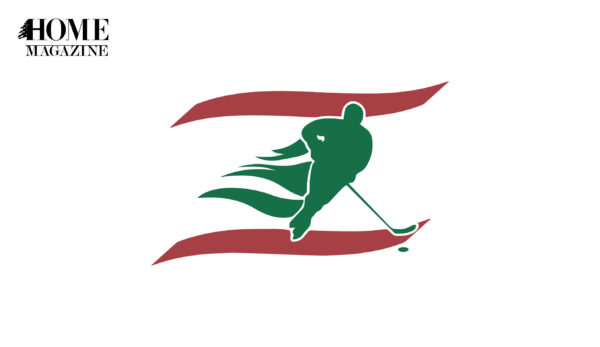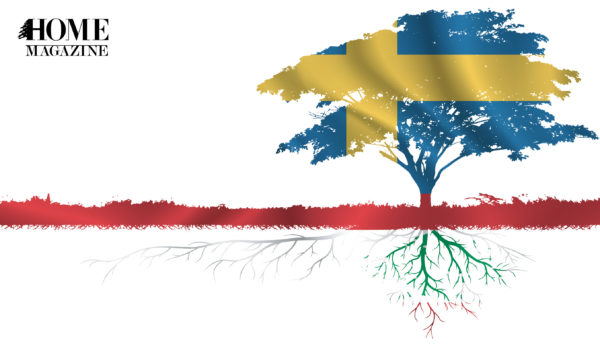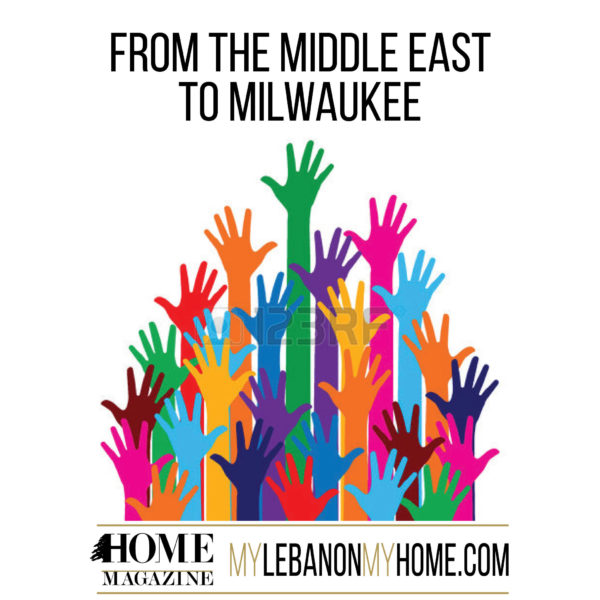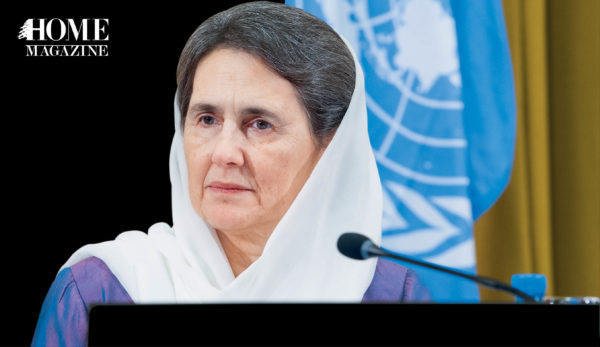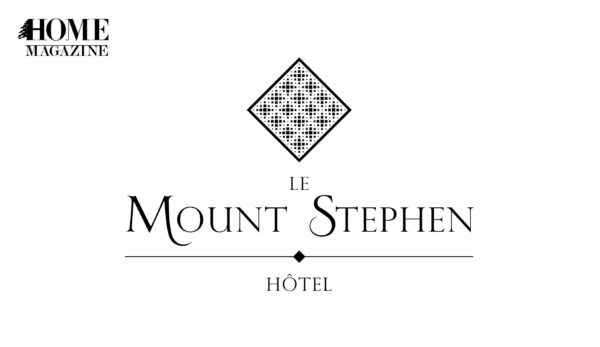Boston, Massachusetts is known for its historical significance in the American Revolution, along with championship sports teams, world-renowned universities, walking-centric city design, and a beautiful skyline and location.
Cambridge, Massachusetts is right across the Charles River and encompasses a good-sized chunk of the Boston area – it champions an even more liberal and progressive attitude, hosts Harvard University and MIT, and contains some of Boston’s best music venues, bars, museums and arts institutions. Cambridge is also the HOME of two very passionate and successful Lebanese businessmen that operate in very different worlds.
Joseph and Nabil Sater purchased the Middle East Restaurant in Cambridge’s Central Square in 1975 from previous Lebanese owners.
The restaurant operated successfully for years and included some live entertainment, including Arab language bands and orchestras, oud players, line dancing and belly dancers, plus live blues and jazz music. In 1987, a local rock promoter asked to book a rock show there and a new history began. The
Saters went on to buy the bowling alley below them, which became the Downstairs, a 575-person capacity venue. The restaurant eventually turned into the Upstairs, 194 capacity venue, and adjacent storefronts were purchased to create the Corner – a 70-person-capacity restaurant and bar that features open-mic comedy, belly dancers, and more acoustic acts on alternating nights – and the Zuzu, a restaurant and bar with an upscale decor and menu that features bands and DJs.
On any given night, bands of all genres, from hip-hop to punk rock and electronic to funk will be playing in all the different spaces, while people pack the three restaurants to eat delicious Lebanese cuisine – fattoush, shwarma, tabouleh, hummus, olives, grape leaves, and more – they even serve Lebanese Almaza beer. The Middle East is one of the most respected small- to mid-size independent music venues in the country and is a nexus for international touring bands, as well and up and coming locals. The venue was an early HOME of Boston’s own Mighty Mighty Bosstones, Morphine, and Dropkick Murphy’s, and hosted many other acts such Eminem, Tony Bennet, Aerosmith, Peter Wolf and Public Enemy, either before they struck it big or for a special intimate show.
“The credit goes to the musicians. Our energy allows for their creativity. They love it here and we get along,” says Nabil Sater.
Nabil Sater grew up in the Chouf Mountains, then later in Baalbek and Beirut, and went to the Lebanese University. He first went to Mexico to attend medical school and that didn’t work out, so then he came to the USA to study English. “My parents were still in Lebanon. I came alone here with no friends, no family, and no English. I spoke Arabic, French and Spanish.” He originally studied English in Arizona, then went to Texas, and then came to Boston in 1971 to join a few friends. He was planning to head HOME to Lebanon when the Civil War started. “Instead of me going back, I brought the rest of my family here. The immediate family all got out alive during the war, but some of the relatives did not.”
Sater began working part-time in fast-food eateries and at Polaroid, but his real passion was to run his own restaurant. Sater got to know the original owners of the Middle East and worked out a deal to buy the restaurant – he even worked with them for free for a year to get to know the customers and the food. “Then my mother came to town with my family, she kicked me out of the kitchen and my brother came and worked. It was a small little place, it was only like six tables or so initially.” The Sater brothers are still completely involved in the daily running of the venue and restaurant; Nabil is there during the day and his brother Joseph is there at night. They now have upwards of 150 employees and produce up to 30 events a week between all their spaces, equaling almost 1,500 per year.
Sater attends the church called the Cedars of Lebanon in a neighborhood of Boston called Jamaica Plain and is part of a local Lebanese community.
“I miss it. Lebanon was a great, great country and a great place to grow up before the war. Now it’s so sad. It’s hard for me. Let’s hope there will be peace and prosperity for everybody’s sake,” says Sater.
A little over a mile away from the Middle East in Cambridge is the storefront for Beyt by 2b Design, which was founded by Lebanese businessman Raja Moubarak and his wife, French designer Benedicte de Vanssay de Blavous Moubarak. 2b Design is an award-winning HOME decor social enterprise that creates one of a kind tables, mirrors, lamps and other artistic HOME items out of reclaimed materials (iron, wood, tiles, etc.) and architectural salvage. To do this, they employ marginalized and disabled persons and help them become great artisans. Beyt is their flagship 2b Design brand, and the word means house or HOME in Arabic. Beyt by 2b Design is also Lebanon’s only certified for-profit “B” (benefit) corporation and was the first in the Middle East – a socially responsible company that is defined by its social justice purpose, accountability and transparency.
Raja Moubarak grew up in Beirut, and for periods of time in France, going on to the American University of Beirut for his undergraduate business degree.
He then went to New York University to complete a master’s degree in business administration (MBA). He went on work for multinational companies in a variety of countries in the medical and consumer product fields, including Coca Cola. In 2003 Raja resigned from his Coke position in Tunisia and decided to move back to Lebanon with his wife to do something positive for the country. “Lebanon is a love/hate relationship. You love so many things about it – you love the people and the climate. You hate the traffic, the chaos, the instability, corruption, all of these things,” says Moubarak. “Not much had changed over the years because the Lebanese are very good at erasing their memory, because they just want to move on and move forward. They don’t always learn from the mistakes of the past. Then history repeats itself.”
He wanted to make a difference.
Moubarak’s wife Benedicte had been a designer and social worker, helping poor people and exploited women in a diverse mix of places, from Brazil to the Philippines, for almost 10 years. Benedicte began working with craftsmen and women to create things in the different countries they moved to. In Lebanon, Benedicte noticed that much of the traditional heritage had been destroyed by conflict and unchecked real estate development.
“Looking through old buildings, she could only find bits and pieces of old balconies and gates that come from the beautiful Lebanese houses that were influenced by French and Phoenician architecture,” Raja Moubarak recalls.
“I remember going to the different villages and we ended up with a pile of scrap metal. She said, ‘These are pieces of Lebanese heritage – what are we going to do to preserve it?’
And she decided to transform them into art.”
Benedicte began designing pieces, and along with Raja, they decided to work with people that were “outside the traditional job market.” They connected with a team of disabled and unskilled ironworkers who, at the time, were only cutting metal tubes for wheelchairs. They then partnered with this team and the largest local Lebanese NGO, L’Arc en Ciel (Rainbow), which was already employing people with special needs. In 2005, production began. At the beginning, the leader of the ironworkers, Omar, created Beyt’s first piece – a table made out of an old gate. “Originally, he looked at the gate and said, ‘What are you doing with this? This is a piece of junk, throw it away.’ Benedicte convinced him to give it a try and when he completed the piece, he marveled at his own achievement,” says Moubarak. Since then, all of their pieces have been created in Lebanon and exported around the world.
“Our mission is restore the unseen value of the broken. We are a blended company. We blend throughout our process. For example, over 90 percent of every piece is made out of recycled materials. We only work with people who have been broken – either their dignity or if they are disabled, or people who have no access to the job market. Reconciliation is part of what we do,” says Moubarak. “There is a lot of sectarian tension in Lebanon. How can you work with Muslims, Christians, and others to restore something that they could have contributed to breaking during the war when they fought against each other?”
Initially, Beyt by 2b Design sold items mainly in Lebanon, but also in Europe, including France, the U.K., Switzerland and Hong Kong. In 2013, they opened their first storefront in the USA in Cambridge. “We thought – there is an element of reconciliation between the East and West that is not being addressed. Americans often have this negative perception of Middle Easterners, and for the most part the reverse is true. How can we bring to the U.S. elements of the local Lebanon heritage and show U.S. customers that there is a beauty that can come out of Lebanon – not just violence and conflict? By the same token, how can you have people in Lebanon understand that Americans appreciate the work they do and know that Americans don’t consider them terrorists,” says Moubarak. Plus, Moubarak adds, Americans are very concerned with social justice and are very generous people, in terms of donations to charities and different causes.
Beyt also has a small workshop in their Cambridge store. They have hired two women – Robin and Loraine, both who have been HOMEless or were addicts. Loraine now creates all of Beyt’s lampshades for the repurposed iron lamps and has garnered media attention from the likes of the BBC for her story of escaping HOMElessness.
“Our aim is to grow and hire more marginalized women,” says Moubarak.
“We don’t get any donations or grants. We are not a non-profit. It would be so much easier if we were . Here we have to compete with the big guys – Crate and Barrel, Anthropolgie, whose stuff is made in China, and many more and it’s difficult.” But Moubarak says that the Boston people have been supportive of the store and they have had a lot of incredible local and national press, which has helped spread awareness about the store.
The Moubarak family travels back and forth between the U.S. and Beirut, but spends a majority of time in Boston throughout the year, because of their kids’ schooling. They vow to continue to spread the good word about Lebanon, inspire the creation of more social enterprises in the Middle East, and create beautiful and inspiring reconciliation art pieces.
Please visit the Middle East at 472- 480 Massachusetts Ave, Cambridge, MA 02139 or at www.mideastclub.com and Beyt by 2b Design at 185 Mt Auburn St, Cambridge, MA 02138 or at http://www.2bdesign.biz.





